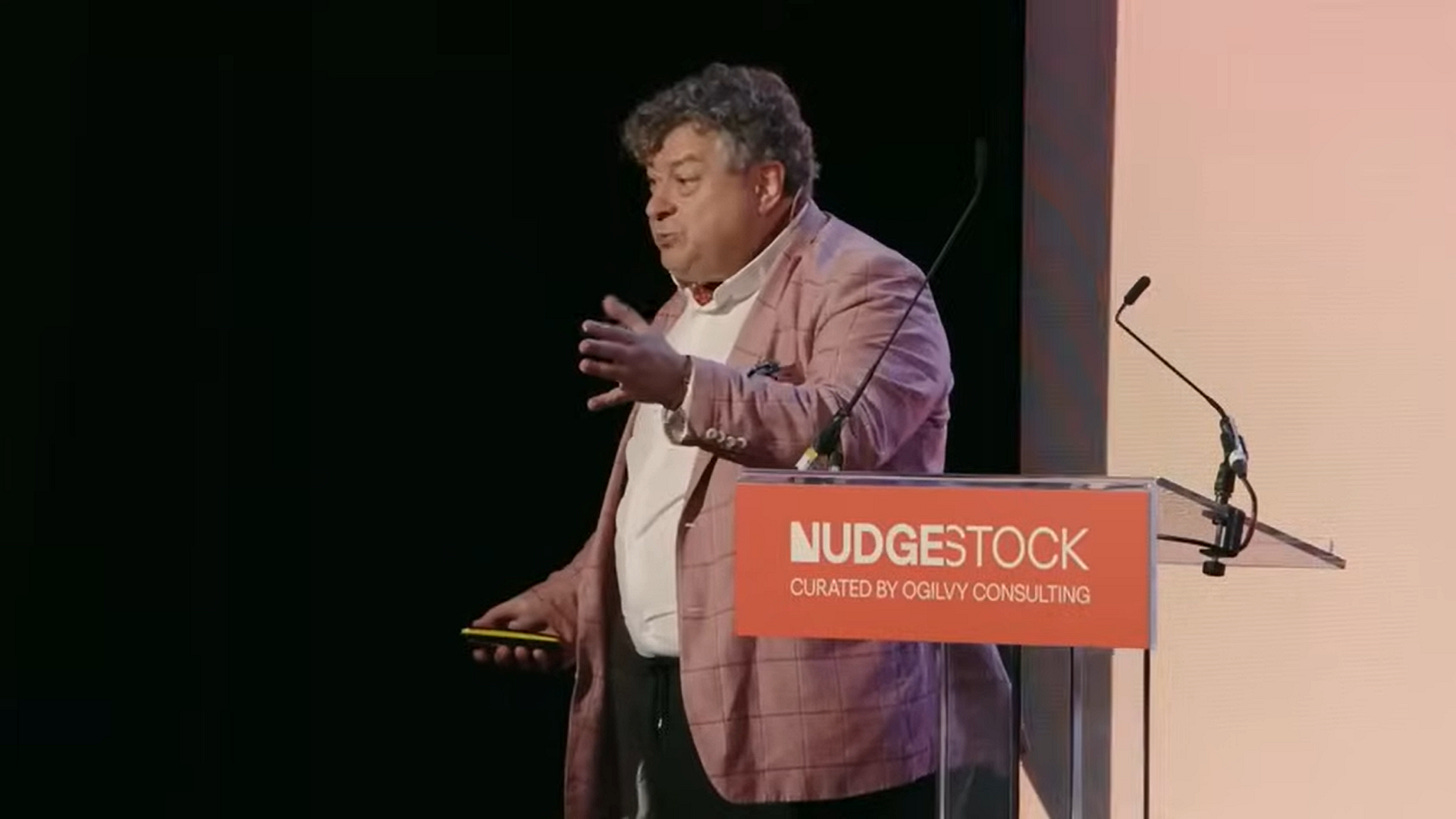How to rebel against the speed of modern life
In his 2024 Nudgestock keynote, Rory Sutherland talked in detail about social acceleration, drawing from the work of German sociologist Hartmut Rosa, who coined the term and developed the related theory of resonance. It was a critique of our modern life.
You know that if you live in 2025, almost everything is measured and consequently optimized: travel and delivery times, connection speed, app load time, decision-making on trades, as well as tickets closed in Jira, calories burned, engagement rates, clicks, and credit scores.
Usually, the faster the better.
Social acceleration means technology is moving faster than ever, and it’s reshaping our norms and institutions along the way. What follows is our desperate, day-to-day attempt to keep up with the pace of life.
Want a bad example?
In 2008, we still believed in chance encounters, the run-ins that felt meant to be. When Tinder went live in 2012 and then Bumble in 2014, the slow rituals of meeting and getting to know someone got reduced to swipes, and then came the rise of roster dating. When I hear my Gen Z kids say “I’m tired of dating,” I sometimes assume it’s because they have four people stuck in the talking stage, and at least one first date a week. Lol.
The faster we go, the more disconnected we feel.
Inertia
There are many reasons we keep getting pulled back into acceleration, even when we try to slow down. Institutions are built to reward speed. In media, for instance, the outlet that breaks the story first gets the clicks and the views. Depth and nuance, if they arrive at all, usually come later. Competition drives the same dynamic: the companies that move faster often dominate their markets.
This creates a self-reinforcing loop where slowing down can feel like dropping out (as in the case of Yahoo, Kodak, and Multiply).
I learned that the hard way as a young professional in the 2010s.
I bought a BlackBerry so I could reply to emails faster. Naturally, my company rewarded that “efficiency” with (surpriseee) more work. The faster I responded, the faster people expected me to respond. The motto of the decade was: work hard, work fast, work more. And I worked harder than a horse on roids.
At first, hustling did give me some financial stability and the ego boost from LinkedIn recruiters.
But underneath it all was a constant hum of disquiet. Even when technology gave me more time, I filled that time with more tasks. On “rest” days, I would pack my schedule with activities, meet-ups, and errands until there was nothing restful about them.
By the summer of 2017, I had burned out completely.
I quit my job. I ran trails to my heart’s content, and endeavoured to start over.
Resonance and small acts of rebellion
Social acceleration is baked into modern life. Unless you go full Thoreau and retreat to the woods, it’s almost impossible to escape. But you can push back in small but meaningful ways.
Take the scenic route. Challenge the belief that faster is better. In his keynote, Rory Sutherland asks: if you had to travel from one place to another, would you choose the quickest route or the scenic one? And if you saved 45 minutes on the fast route, how would you really use that extra time?
For once, wear a watch that only tells the time, not an over-engineered data screen. Stop measuring everything. Your life (and your fitness) won’t collapse if you don’t track your steps for a week. It won’t even collapse if you don’t track them for ten years. Measure only what truly matters, not what apps or wearables tell you to.
Choose gardening. Or any form of slow activity like cooking, Gunpla assembly, or Warhammer painting. These aren’t just hobbies, they’re acts of resistance. They carve out a space where acceleration can’t reach you.
And so, we go back to resonance.
Resonance is the opposite of the numb, rushed, disconnected feeling that comes from living in constant acceleration. Hartmut Rosa says it is about connection and transformation, whereby the world “answers” you when you engage with it slowly and attentively.
So today, HGRT would like to raise a question: How would you like to rebel?


